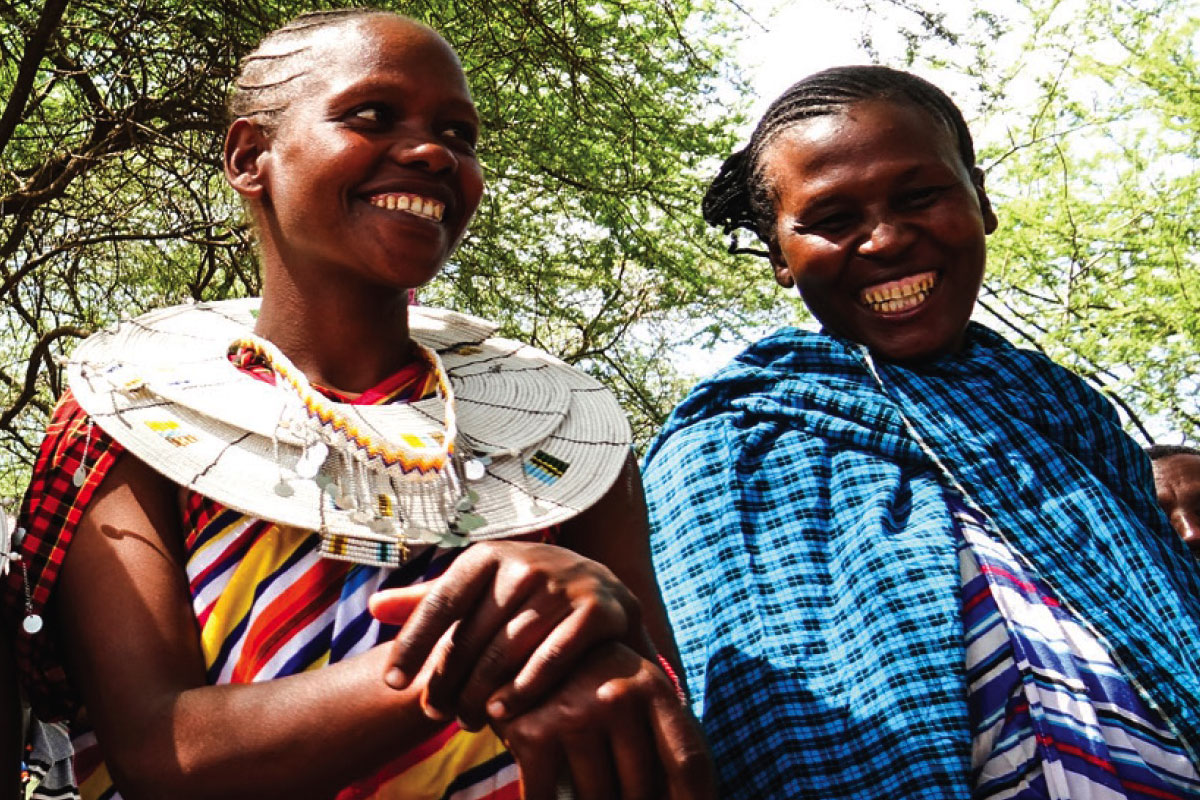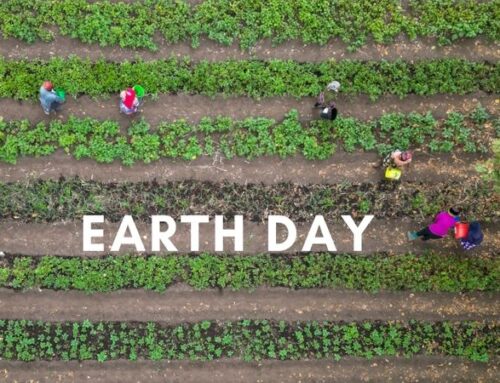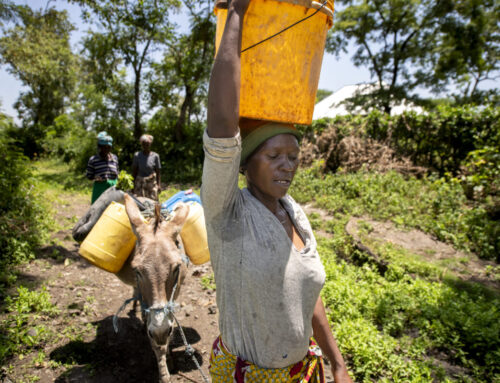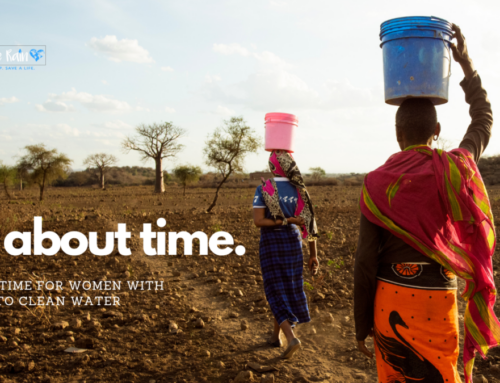Three years ago, we gathered in Lositeti, a village in the far reaches of the Makiba Ward in the Arumeru district of Tanzania. As we finish the tour of the school, Gilbert, a local Rotarian, becomes emotional. He says he is not certain how this kind of poverty exists in Northern Tanzania. Truthfully, it takes only one story to fully understand the depth of their struggle and to commit to help. But the women don’t stop at one. They share their stories of rape, domestic violence, anxious nights waiting for water, and the 10 hour daytime journey when the water did not come to local tap the night before. Not a single one of us left with our hearts intact.
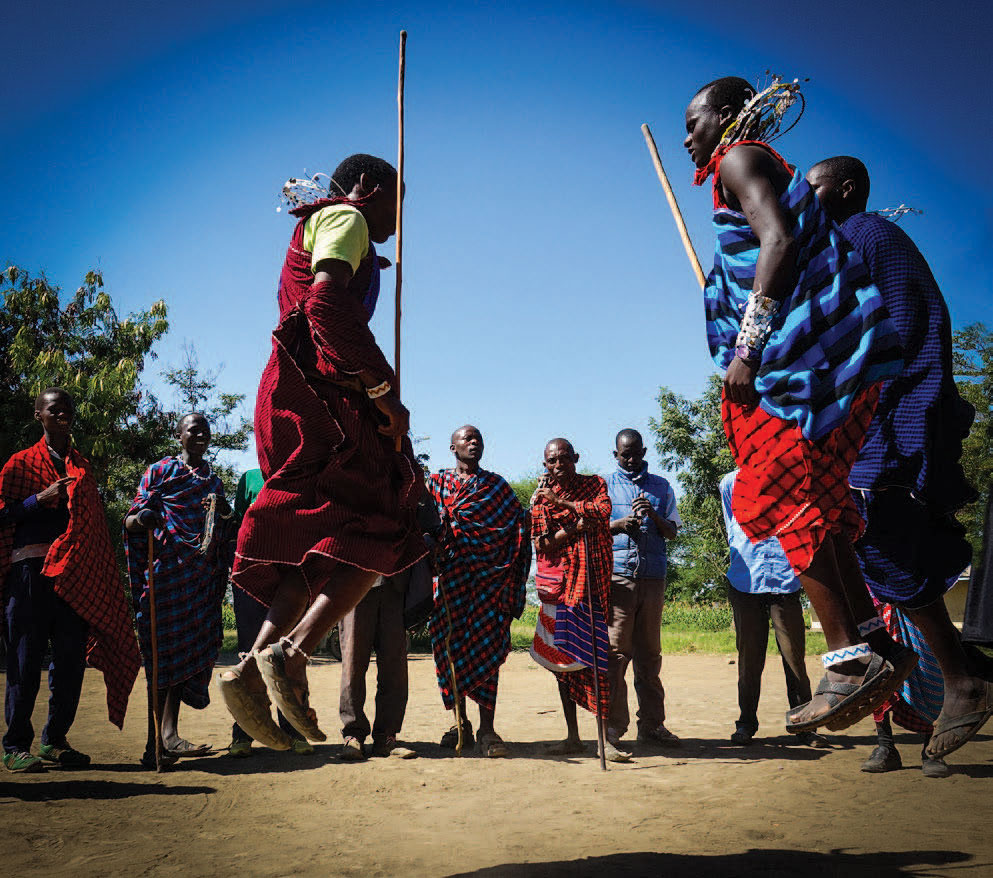 Fast forward to our return, after the rainwater harvesting system is built on their local primary school. The village holds a celebratory gathering. We sit across from many rows of open benches. The last man is seated in the fourth row. The women begin to pile in. Culturally they are required to wait for the men to be seated first. They take the open seating in the first 3 rows. The man in the fourth row begins to yell, berating the women for sitting in front of him. Joseph, our Tanzanian country Director, gets up and walks towards the man. He speaks to him softly and respectfully. “Save the Rain helps women and children. Please understand, no women, no tanks. No tanks, no water. Do you understand?” The man is silenced. Three years later we are again at Lositeti but this time to honor it as a pilot project in the area. It is a community that has reached out of the depths of despair and now stands like a flagship of hope. A village that used to dwell on barren land now has gardens blooming all around it. A school that no teacher would agree to work at now has a waiting list of teachers wanting to be there. The crowd quiets for the ceremony. Men and women sitting together. A choir of Maasai men come to the center to perform. They sing a song about how there is more peace in the family now that women are no longer gone all day and night in search of water. They sing about how their women now earn money building tanks for others, about how now they, the men, tend to some of the household chores. But best of all they sing of their joy, because now there is Chapati (Tanzanian flatbread) with their meals and their bellies are full and happy. Laughter erupts at the old adage that no matter where you are, the best way to a man’s heart is through his stomach. The men leap in their traditional manner as a statement of the growth in their community. The women’s choir joins in. Their colors are bright and their voices are beautiful. They sing of the gifts the water brought that they had not anticipated. Violence in their homes has stopped. Respect between genders has replaced it. Their men are working the land beside them. They look at each other eye to eye. Children are healthy and excelling. Their village was once looked upon as a cursed address. It is now a place of pride. Their community still has obstacles to overcome but they now know they can do it together.
Fast forward to our return, after the rainwater harvesting system is built on their local primary school. The village holds a celebratory gathering. We sit across from many rows of open benches. The last man is seated in the fourth row. The women begin to pile in. Culturally they are required to wait for the men to be seated first. They take the open seating in the first 3 rows. The man in the fourth row begins to yell, berating the women for sitting in front of him. Joseph, our Tanzanian country Director, gets up and walks towards the man. He speaks to him softly and respectfully. “Save the Rain helps women and children. Please understand, no women, no tanks. No tanks, no water. Do you understand?” The man is silenced. Three years later we are again at Lositeti but this time to honor it as a pilot project in the area. It is a community that has reached out of the depths of despair and now stands like a flagship of hope. A village that used to dwell on barren land now has gardens blooming all around it. A school that no teacher would agree to work at now has a waiting list of teachers wanting to be there. The crowd quiets for the ceremony. Men and women sitting together. A choir of Maasai men come to the center to perform. They sing a song about how there is more peace in the family now that women are no longer gone all day and night in search of water. They sing about how their women now earn money building tanks for others, about how now they, the men, tend to some of the household chores. But best of all they sing of their joy, because now there is Chapati (Tanzanian flatbread) with their meals and their bellies are full and happy. Laughter erupts at the old adage that no matter where you are, the best way to a man’s heart is through his stomach. The men leap in their traditional manner as a statement of the growth in their community. The women’s choir joins in. Their colors are bright and their voices are beautiful. They sing of the gifts the water brought that they had not anticipated. Violence in their homes has stopped. Respect between genders has replaced it. Their men are working the land beside them. They look at each other eye to eye. Children are healthy and excelling. Their village was once looked upon as a cursed address. It is now a place of pride. Their community still has obstacles to overcome but they now know they can do it together.
Save the Rain has trained and now employs 22 women in Lositeti who have built 116 residential rainwater harvesting systems and home gardens in their village. A 200,000 liter rainwater harvesting system was built on the school and regardless of their small annual rainfall, has never been empty. A flourishing school farm and vegetable garden welcomes you as you arrive at the school. A new grant in partnership with Rotary International will provide 5 more communities in the Makiba Ward with assistance similar to what was done in Lositeti. The women of that village will be at the helm of the project. We are so grateful for the commitment of our donor family and the exponential growth your contributions created. Your dollars broke through a ceiling of generational belief around gender. Amazing what a little drop of rain can do.


